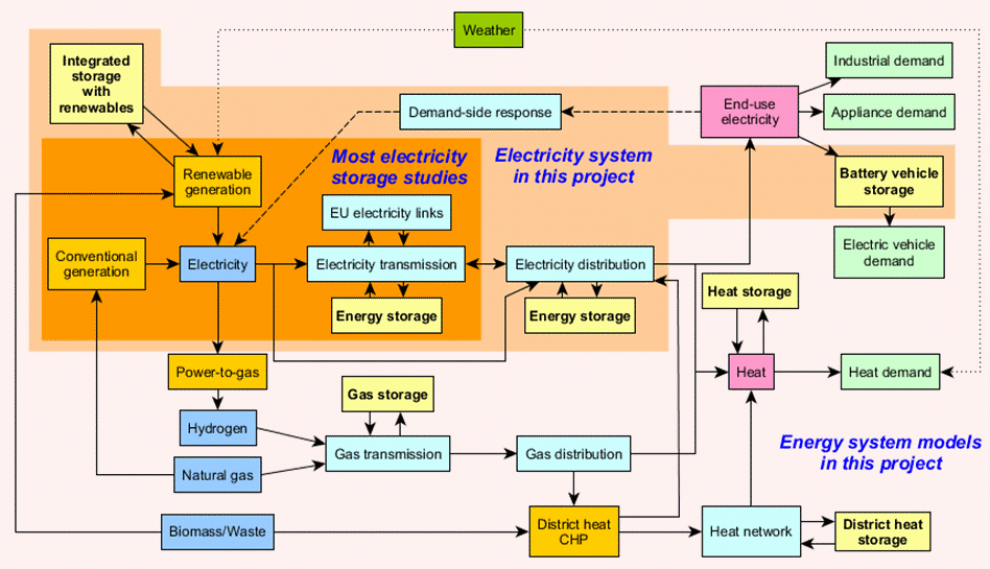Realising Energy Storage Technologies in Low-Carbon Energy Systems

1 September 2015
The Realising Energy Storage Technologies in Low-Carbon Energy Systems (RESTLESS) project is assessing the potential value of energy storage to the UK, as part of our transition to a low-carbon economy. The project aims to understand how novel energy storage technologies can be integrated into the UK energy system to support renewable generation in the future.
In the past, coal and nuclear plants have provided a constant "baseload" output while flexible gas and oil-fired stations have provided "flexible" generation to meet peaks.
There is strong pressure to transition to a low-carbon electricity system that avoids fossil fuels such as coal, oil and gas. Renewables such as wind turbines and solar panels generate zero-carbon electricity but their output is highly variable. Nuclear power stations provide constant but inflexible output.
As the proportion of renewables and nuclear generation increases, alternatives to the use of flexible fossil-fuelled generation as a means of balancing the electricity system will become increasingly valuable.
Numerous energy storage technologies for storing electricity are under development to meet this demand, and as the cost of storage is reduced through innovation, it is possible that they could have an important role in a low-carbon energy system. However, this depends on the costs and benefits relative to the sharing of these electricity imbalances through greater interconnection, demand-side electricity response and wider energy system storage. This project aims to understand how novel energy storage technologies might be integrated into the UK energy system in the future.
The RESTLESS project is taking a broader approach than previous projects by considering alternative energy system scenarios in which storage options are more integrated into the energy system (e.g. producing hydrogen for transport or heat for buildings), using a series of soft-linked energy and electricity system models. The diagram below compares the breadth of the energy system that tends to be examined in other projects and that is being considered in this project:

We are examining three hypotheses:
- That a whole energy system approach to ES is necessary to fully understand how different technologies might contribute as innovation reduces costs and as the UK energy system evolves;
- That a range of technological, economic and social factors affect the value of ES, so should all be considered in energy system scenarios; and,
- That the economic value of the difference between good and bad policy decisions relating to the role of energy storage in the transition to low-carbon generation is in the order of £bns.
The project research activities include:
- Metrics and environmental impacts
- Whole system energy storage valuation
- Electricity system valuation
- Economic analysis and market models
- Public attitudes
- Policy and research implications
Project Lead: Dr Paul Dodds
Visit the project website: www.restless.org.uk
 Close
Close

